Drag Race UK’s Cherry Valentine ‘absolutely terrified’ to make BBC doc about LGBTQ Travellers
"For people within closed communities, the most important work to be done is to just be visible."
By Will Stroude
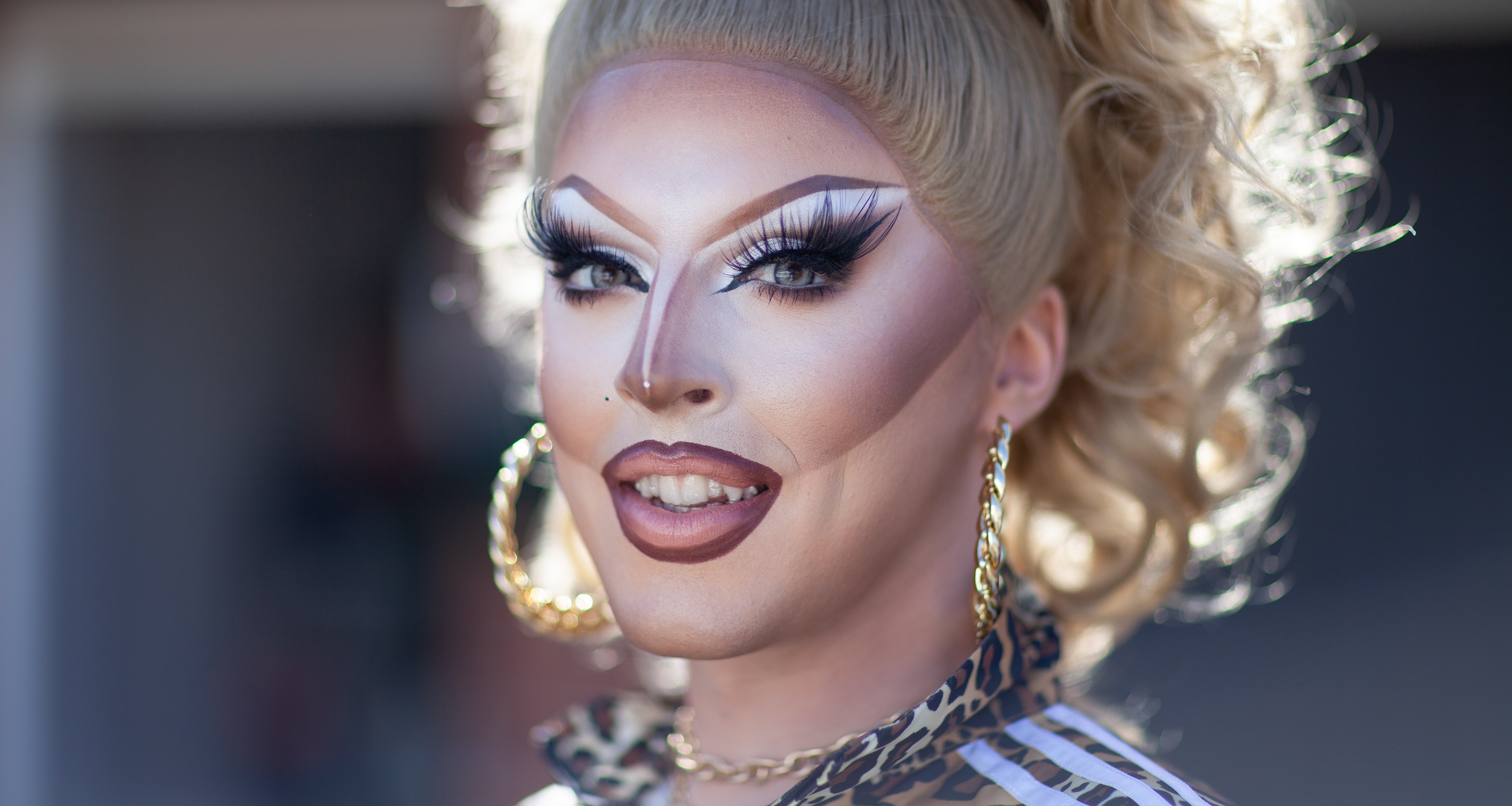
Words: Attitude; Images: BBC
When Cherry Valentine opened up about her struggles growing up gay in a Gypsy Roma Traveller community on Drag Race UK season two, the Darlington queen won hearts across the country while shedding light on a little-explored facet of the queer community.
Now, the 28-year-old performer – real name George Ward – is digging even deeper in a fascinating new documentary on BBC Three and BBC iPlayer that sees her attempt to find harmony between her queer and Traveller identities as she hears from other LGBTQ Travellers around the UK.
Cherry Valenine: Gypsy Queen and Proud offers a powerful look at the impact of growing up queer in often socially-conservative Traveller communities, and how times are finally changing with the establishment of groups like Traveller Pride.
For Cherry, who left her own community behind at 18 after a “difficult” adolesence, making the film forced her to reckon with her own history and identity. We caught up with her to find out more…
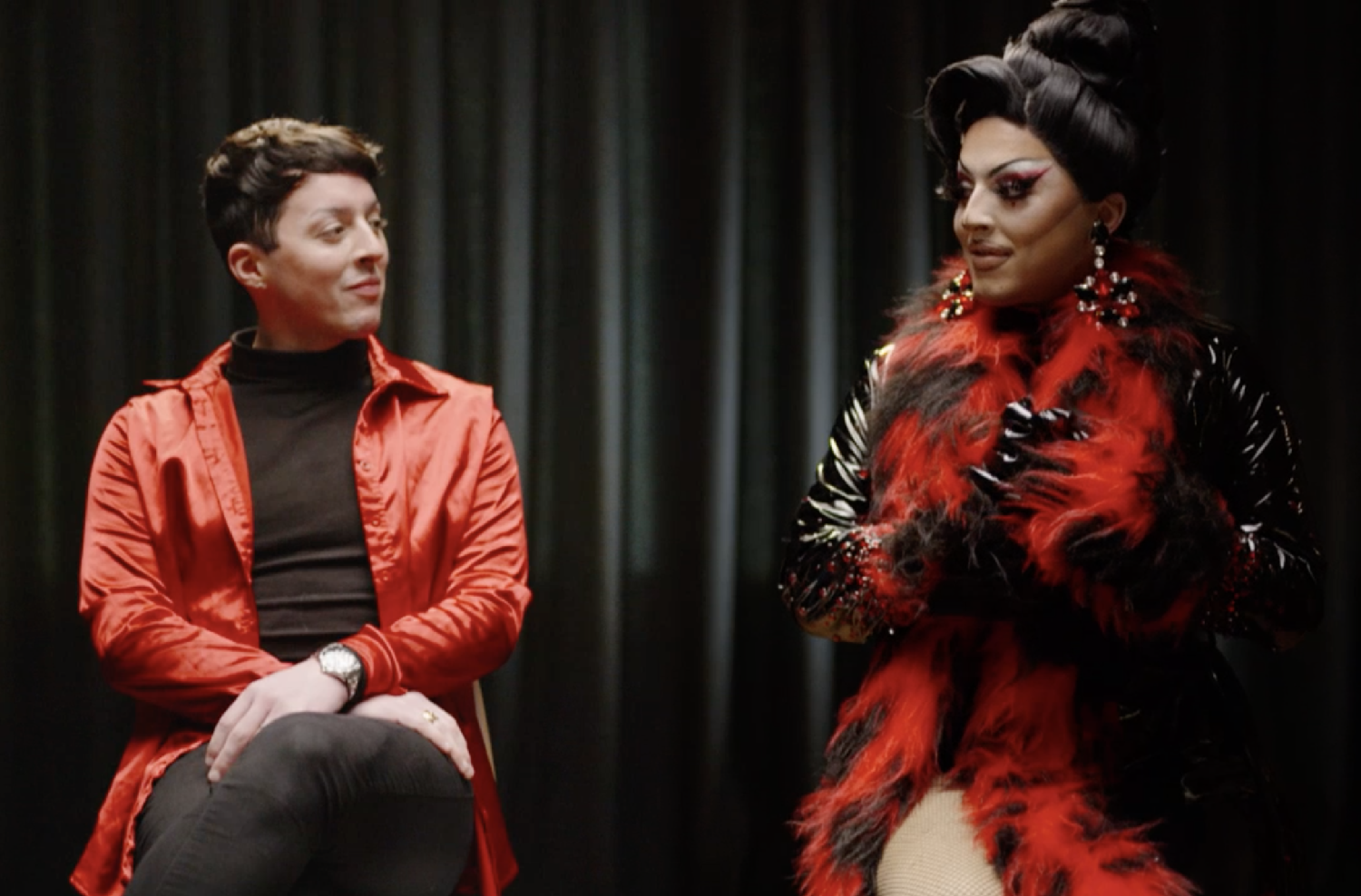
Image: BBC
Gypsy Queen and Proud is such a personal story for you: Did you have any concerns or doubts about unpacking this part of your life so publicly?
Of course I did. If I’m being completely honest I was absolutely terrified, because it was so real and I’m not one of those people who do usually talk about everything that goes on behind closed doors. But then I had a lot of people around me saying ‘This is an amazing opportunity’ and I thought to myself ‘It really is, and why wouldn’t I talk about this stuff when I have a platform to be able to do that?’ I always think if I was younger and saw something like this from a queer person from the same community, maybe I would have felt a lot different growing up. But yeah, I was absolutely terrified. Terrified, because I didn’t know how the community would react; I didn’t know how the public would react.
Have you had any early reactions from family or community members already?
Yeah, I actually spoke to my mum this morning, and she said she was psyching herself up to watch it! Because it’s a lot, and I told her beforehand ‘We do talk about some real stuff that we’ve never talked about before, so just take your time and then we’ll talk about afterwards and you can tell me how you feel’. But I’ve not really spoken to anyone else. I’ve had a lot [of messages from] in the community: I’ve had a lot of DMs from people who are involved in filming and a lot of messages from people with incognito profiles, just saying like, ‘It’s amazing, I’m from a similar community and I’m so happy that you’re doing this. So that’s really positive.
The Gypsy Roma Traveller community can be quite insular – was it difficult to find LGBTQ people willing to speak to the documentary?
Yeah. There were always people who were a bit on the fence about whether they wanted to be involved in the project, and even my own family came to the decision that they didn’t want to be fully involved – although they also supported me doing. In the documentary I speak to Tyler and even meet his dad and I just think that’s such a poignant moment, to talk to someone from another side who’s had a [positive] experience. I think it’s really important because we grow up and we hear things about certain communities that aren’t always true; it’s right for a small subsection, but it’s not a generalised rule.
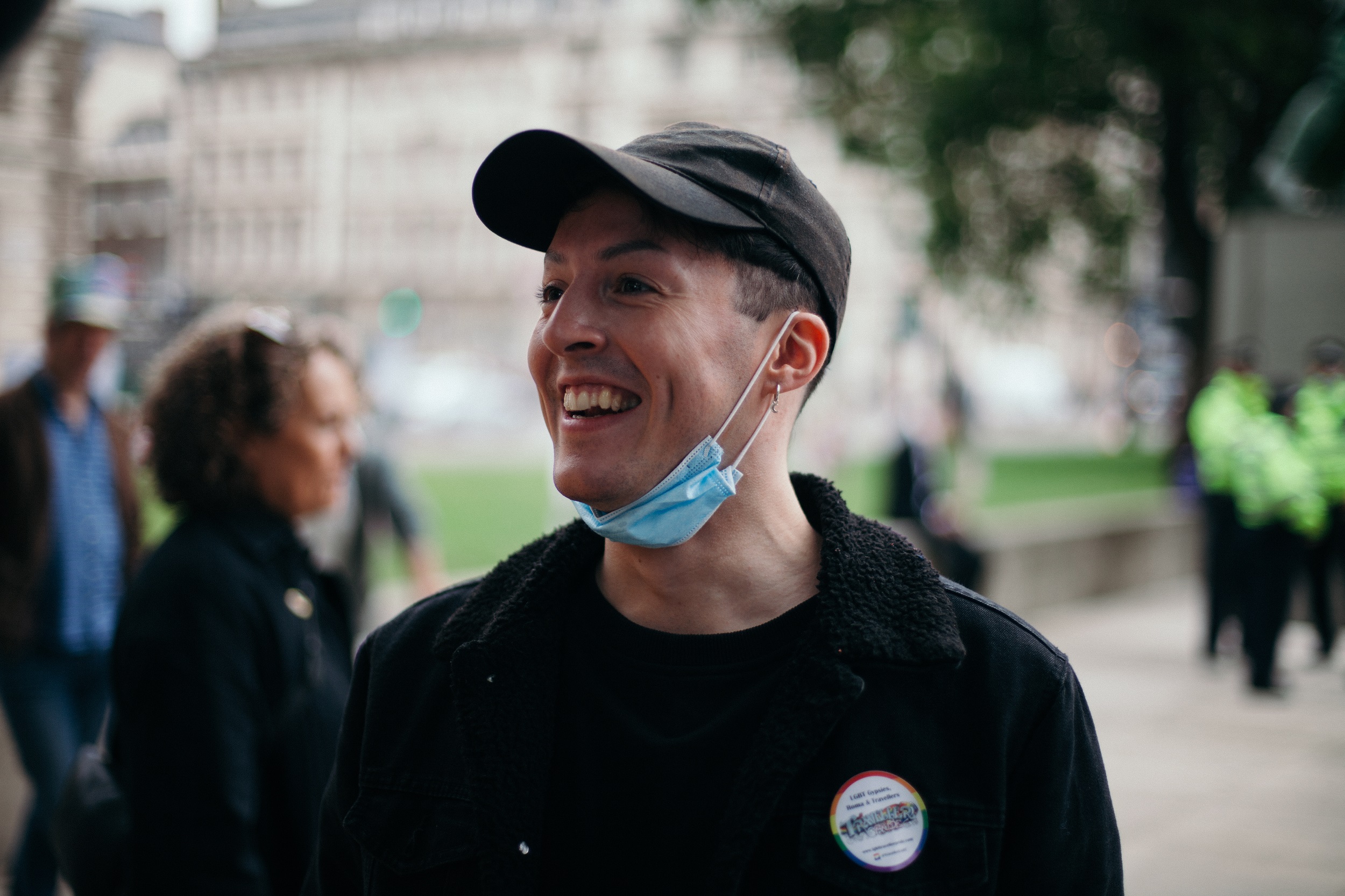
Image: BBC
You left home at 18 after coming out. What was your journey like coming to terms with your sexuality?
I think for a lot of people who come from LGBT+ backgrounds, they can struggle with identity. So, growing up I hadn’t got a clue who I was or what I wanted to be and how I could go about doing that. I think it comes to a point in your life where you are at a crossroads. I did come to a point in my life where I thought that the only decision was this or… that was it, I wouldn’t have been able to do anything else, I just don’t live. And I do touch on that in the documentary. That’s how I felt in that moment and I think a lot of people can relate to that. It’s a really scary place to be. The whole experience growing up was difficult. People tell you ‘you’re a man, this is how you should act’. I just never felt like that was the case. I think it just comes from tradition. It comes from that idea of [an] old-fashioned way of living. Even when I was younger, the last few family events I went to, the men don’t even sit with the women. It’s quite segregated at times. The men tend to stick with the men and by association you don’t want to be seen as feminine in any way.
Gypsy Roma Travellers face their own hostility and prejudice from other parts of society. Have you faced any of that yourself from within the LGBTQ community?
To be honest I never ever told anyone about my background when I first went into the community. If someone asked me about my family, I would skirt around it and not really go into detail, because you have this idea in your head that people are going to take the negative side of that. And there are some negative connotations that do come with it. I always packed it away. When I discovered the LGBT community, there was a certain way – and I think Tyler from Traveller Pride really touches on it [in the documentary] – he didn’t feel like he could fit in even with the LGBT community, because he didn’t feel like he was the norm in that community either. It can be really difficult and really conflicting.
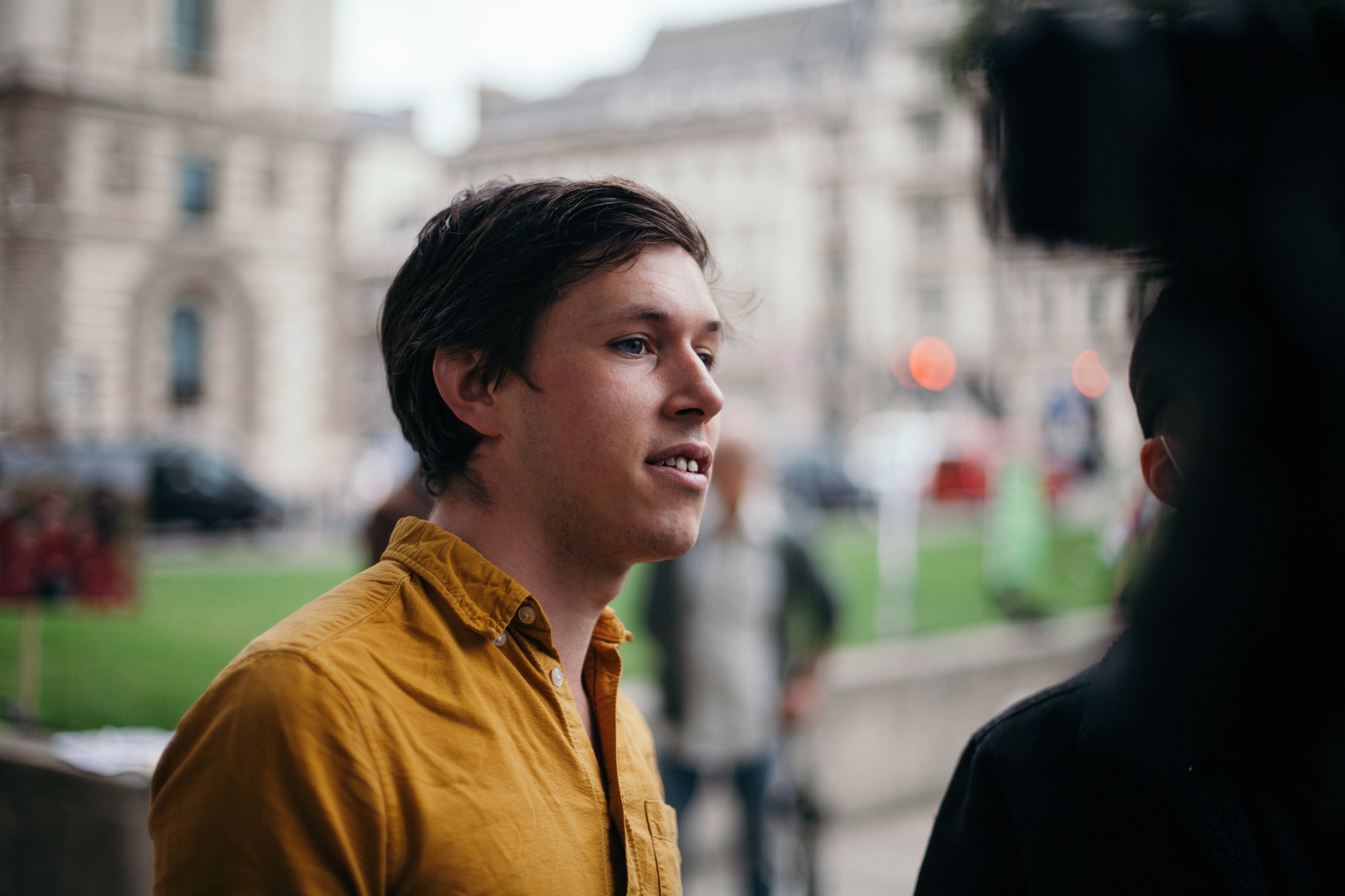
Traveller Pride founder Tyler Hatwell is just one of the many LGBTQ Travellers Cherry meets in Gypsy Queen and Proud (Image: BBC)
Has doing the documentary helped you embrace that part of your life now?
Yes, definitely, 100%. I’ve met people that have actually changed my life and I’m still in contact with a lot of the people who were in the documentary. It really has changed my perception on a lot of things; that we need to continue to talk about it and continue those conversations.
There’s a particularly emotional moment in the documentary when you said ‘I’m sick to death of feeling like I don’t exist’. How do we get to a place where LGBTQ people in Traveller communities feel like they can remain within the Traveller community and still be themselves?
I don’t think it’s a place we’ll remain in indefinitely. I honestly do think the key is just education. People are scared and fearful of things they don’t understand. I think sometimes we don’t want to interact with certain people because we don’t understand them, and the best thing to do is to talk about it. If it doesn’t come from a negative place, ask questions. I think I’ve come away with more optimism than ever, not just about being LGBT within the Traveller community but just how accepting people can be. People are open to having a conversation a lot of the time, they just need that little push.
Traveller communities are more disconnected to mainstream support services and LGBTQ youth growing up in them might not have access to them. What more can be done to support young LGBTQ Travellers?
I think for people within closed communities, the most important work to be done is to just be visible. People who are able and willing to be visible talking about it openly; not being afraid to start the conversation. Obviously it also comes down to things like government funding, so the more visible we are as people, [the more] they’ll be things we have access to, and unfortunately that’s just the way society sometimes works. We have to be more open about it and say what people need because people in the Gypsy and Traveller communities really don’t have access like the rest of the public do. It’s more difficult to get into education – a lot of people get pulled out because of not being accepted by their peers, bullying – and that in turn affects employment, and that has a knock-on effect.
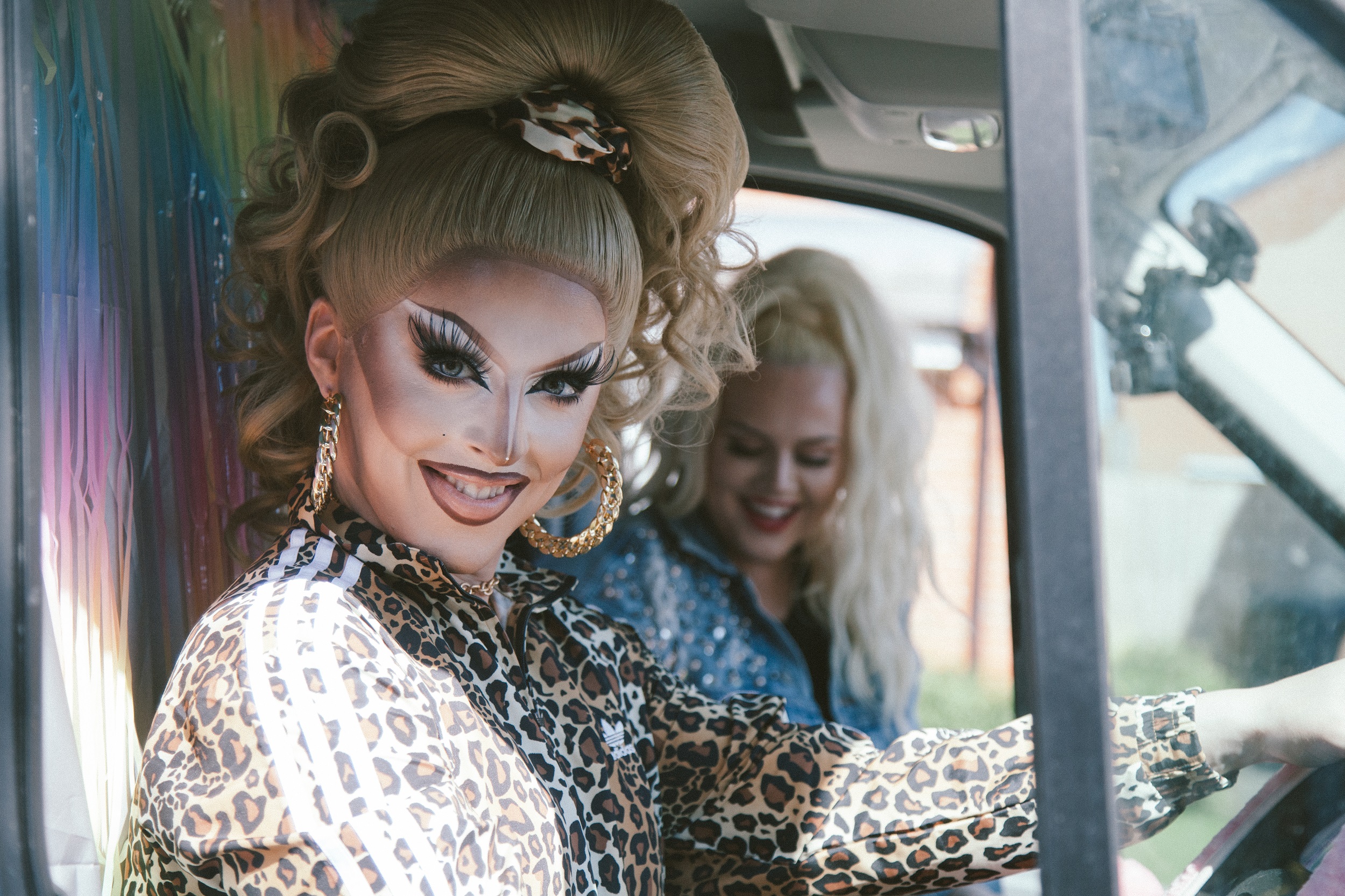
Image: BBC
What would your advice be to young LGBTQ Travellers reading this who may be worrying about their sexuality and what to do next?
It all sounds so cliché, but people are really not alone and there are people other people there you are able to talk to. Traveller Pride has just become a registered charity and that only really started marching in 2019, so times are changing and I think as more generations come up and people have more access to everything, there are more people you’re able to talk to.
Has making Gypsy Queen and Proud brought you closer with family members?
It’s definitely made me more willing to have those conversations now, because I didn’t just move away from them, they moved away from me. It was sort of a mutual thing. I’ve talked to my mum about it and it’s certainly brought us closer: we talk now more than ever and that’s a mad thing for me, because we never had that sort of relationship beforehand. I would like to think that when the rest of the community and a lot of the family watch this, they’ll also want to talk.
What does Cherry Valentine have in the pipeline for 2022?
There’s a lot of things that I’m not actually allowed to talk about! There’s some really exciting things coming towards the end of the year, and I’m actually heading off on tour with the rest of the season two cast?
Are there particular season two queens you’ve remained close with?
To be honest the only time I ever see anyone is when we work together, because everyone’s schedules are so busy. I’ve just moved to London so it’s [now] a lot easier to see some of the other girls. But everyone’s really lovely still, and I don’t care for drama so I talk to everyone!
Answers have been edited for clarity. Cherry Valentine: Gypsy Queen and Proud is available to watch on BBC iPlayer now.
